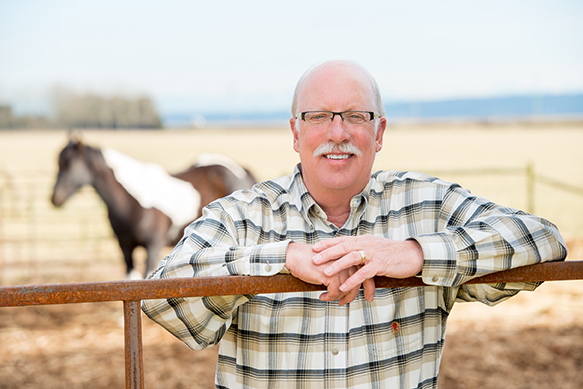As a former dairy farmer and livestock auctioneer who still lives on the family farm where I was born and raised, I thought I understood farming in British Columbia. However, touring all corners of this amazing province over the last three years has taught me that there is so much more to agriculture than what I have experienced living in the Fraser Valley.
Farming in BC encompasses tree fruit growers and the wine industry in the Okanagan; canola, grain and grass seed in the Peace; beef cattle and bison throughout BC, not to mention abattoirs, wild seafood, bees, farmed salmon, and poultry – and that’s barely scratching the surface.
With a province larger in size than most countries, there is no shortage of hardworking farmers from across the spectrum of agricultural sectors in British Columbia.
Yet despite our incredible diversity, I am concerned about the state of agriculture in this province.
Farmers are not immune to the provincial housing shortage. It is becoming increasingly difficult for the next generation of farmers and their families to have opportunities to live on the family farm.
As schools and community halls continue to close due to population decline in our rural areas, having multiple families living together on the family farm provides opportunities for farm help, child care, and other social supports.
Rather than restricting opportunities for families to live together on the farm, government needs to make it easier to build secondary homes through new incentive programs.
On the issue of value-added goods and services, the new clampdowns from the Agricultural Land Commission don’t respect the reality of farming in British Columbia. If there’s one thing that I’ve learned in my time as agriculture critic, it’s that a one-size-fits-all solution will never work in a province like ours. Unlike our neighbours in the southern United States and Mexico who can farm all year long, farmers in many parts of the province are lucky to be growing and harvesting for six months out of the year.
We need to allow our farm families to be creative and entrepreneurial in order to come up with supplemental income to support their farm operations. I get concerned when out-of-the-box ideas like festivals, processing facilities, eateries, roadside stands and cafes are shut down by the Agricultural Land Commission. Agri-tourism is essential in this province. These activities should be encouraged, not regulated into oblivion.
COVID-19 effect
More recently, as British Columbia continues to deal with the impact of the global COVID-19 pandemic, I am increasingly concerned about the ripple effect of containment measures on BC farmers.
To be clear, I believe the interventions taken by the province and our federal government are prudent and necessary. However, we need to consider the economic consequences for our farming families and take necessary steps to mitigate and reverse damage to agriculture where possible.
The federal government’s travel ban on foreign nationals, for example, has raised questions regarding the essential role temporary foreign workers play in Canadian agriculture.
It took a week for the federal government to provide growers with clarity as to their ability to bring in seasonal and temporary foreign workers. Significant uncertainty remains for many farmers and greenhouse operators who depend on these vital programs in order to plant and harvest their crops. The assurances of our government need to be agreed to by partner governments such as Mexico, and then there’s the question of actually getting the workers here in the face of reduced airline capacity. The ability of farmers to get their products to market still faces major obstacles.
A shortage of container vessels coming into BC ports from Asia will also mean fewer containers available to load with Canadian agricultural products for export. The world needs BC food products, now more than ever. The province must work with the federal government and our port authorities to get BC agricultural goods to the global marketplace.
A contingency plan must also be put in place in order to ensure the safe processing of meat, fruits, and vegetables. As the global pandemic continues to grow, it is also crucial that our food suppliers and processing plants have priority for the delivery of food safety apparel, including personal safety equipment.
In the coming weeks and months, we will learn more about the greater impact of COVID-19 on our provincial and national economy. These are emerging and pressing issues. In my capacity as critic, I will continue to ask these important questions to ensure government is doing everything it can to work in the best interests of farmers, ranchers and greenhouse operators across our province.
I truly believe in opportunity for all of BC. Whether you come from a town of 800 or 80,000, you matter. Your contributions to our economy and food security are greatly appreciated in all corners of our province.
Farming is one of the critical industries that keeps British Columbia’s economy moving. British Columbians are tough. We are used to dealing with the unexpected. I’m confident that by working together, we will emerge from these unprecedented challenges stronger than ever.
Ian Paton is the MLA for Delta South and agriculture critic for the BC Liberals.


 COVID-19 hits farm workers
COVID-19 hits farm workers